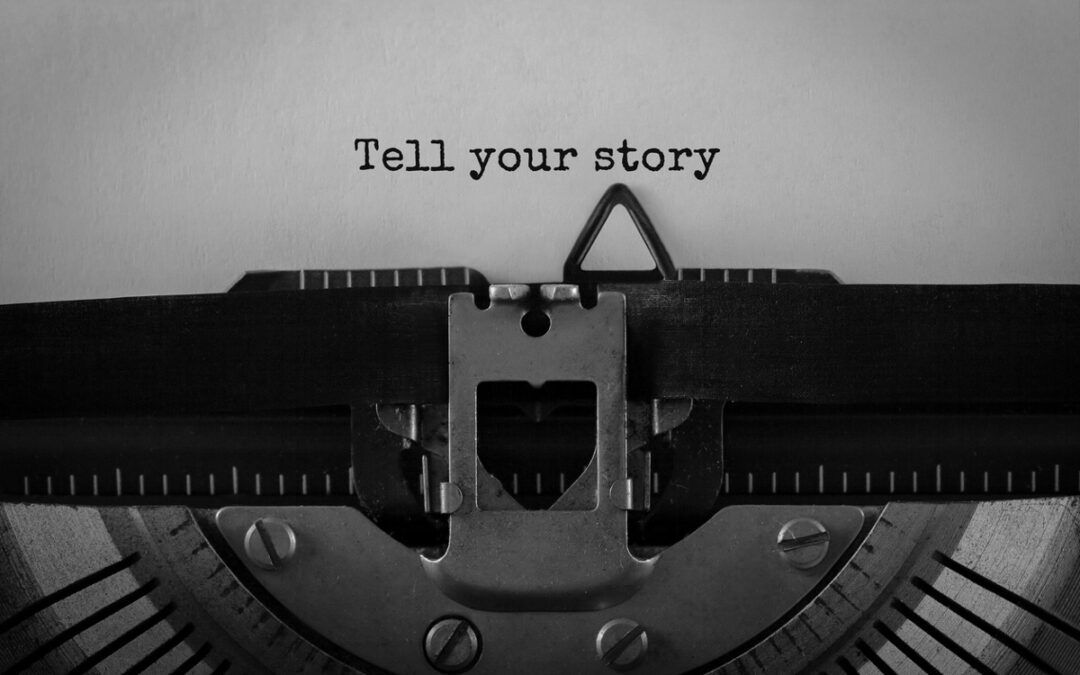Something that routinely distresses me as a copywriter and editor is the notion that people don’t read anymore. Since my first creative writing class in high school (a time further behind me than I sometimes realize), I’ve been aware of the challenge posed to writers in an era of instant gratification. It’s easier to consume a story in the form of watching a movie than reading a book. I’m not going to act like I never watch a movie or play a video game because the truth is I love both media as storytelling devices. In fact, it would be negligent to ignore their ability to tell stories. But when I look at the art of storytelling through the lens of a copywriter, I can’t help but think the ability, confidence, and poise needed to craft a great story are at risk of becoming a lost art.
Okay, But What is Storytelling?
HubSpot has an excellent piece on storytelling that I encourage you treat like a companion piece to this one. They define storytelling as “the process of using fact and narrative to communicate something to your audience. Some stories are factual, and some are embellished or improvised in order to better explain the core message.”
Now, storytelling is often conflated with writing a long work, like a book; some believe there’s no need to weave storytelling into a short piece—why would a blog need to be built upon the foundation of a story? Don’t stories need to be long and drawn out? I argue it’s all about how you use even limited space—this blog is a good example of what I’m talking about. Short, abbreviated stories can be just as effective, if not more effective than an extended narrative. Every storyteller and copywriter should occasionally read or write a piece of flash fiction for this reason.
Why Does Storytelling Matter?
At this point, we’re 300-some-odd words into this and you may, understandably, be wondering why this matters so much to me. From the outset, I discussed how different media can tell compelling stories in unconventional ways, so why does this matter if stories are still being told? I don’t have the Ray Bradbury stance that the proper way to consume media is to read it—which I read as the main argument presented in Fahrenheit 451, not the oft-cited evils of censorship, which was only a supporting point of his argument.
So, why do stories matter? The weight of storytelling’s legacy alone should be enough to convince. Think about it: ancient humans prioritized storytelling above building places to live—cave paintings, anyone? From a historical perspective, we frequently judge the culture of a civilization based on the stories they left behind (epic poems like Gilgamesh, the Iliad, and Beowulf spring to mind). Imagine if in 2250, Marvel released the 562nd and final movie in the MCU. Future historians would likely—and, in my opinion, rightly—wonder which Marvel characters we worshipped and how. Do you think they’d be confused by Marvel’s Thor versus the Norse Thor? I quip. The point being that stories tell us what matters to us as a society.
Copywriting vs Storytelling
My objective in this piece is not to convince non-readers to become readers; this is addressed to the copywriters out there; I’m begging you to bring our craft back to its roots. Storytelling is an art, and, like any art, it takes practice and will never be truly perfected. The HubSpot piece lists 5 qualities of good stories: they are entertaining, educational, universal, organized, and memorable. It can be difficult for writers to achieve one of these, let alone all 5. In this moment of vulnerability, I admit that of the five, keeping the story organized is my greatest challenge.

The skill and hard work required for good storytelling, sadly, runs counter to some of the lazier practices I sometimes see from copywriters. My pet peeve is replacing the opportunity to tell a story with a list. That’s not to say copywriters should never use lists: they are easy to read and they may better suit your buyer personas, but too often, I see lists used as a replacement for prose. Copywriting should be viewed as the artform it is. So, again, I call upon the copywriters in the audience to lend me your ears (and eyes): we are artists, and words are our medium. We can convey ideas and messages in crafty ways and command a reader’s attention if we know how to construct a story that matters. While not every story is written and not every piece of copy must tell a story, we, as artists, would be better served to view copywriting and storytelling as siblings, not as distant relatives. Even a tagline—which presents the challenge of being among the shortest pieces of copy we can imagine—is most effective when it tells a story.
Data is Storytelling. And Storytelling is Data.
Sharp Wilkinson prides ourselves on building our marketing strategies upon data, so we can find out which of our efforts work and which ones don’t. How can we improve what works and adjust what doesn’t so it will? It’s easy to forget since we often think of data as a lot of numbers and charts and of stories as a collection of spoken or written words, but stories are data and data tells a story. So, while they seem to counter each other, there is actually a symbiotic relationship between the two.
Think of it this way: if customers leave you glowing Google reviews, they may also leave stories behind as to why they gave you that rating. Now, these are likely to be very short stories, but every story left behind represents a datum other people on the buyer’s journey may consider during the, well, consideration stage, even if on a subconscious level. Maybe one night you’re considering going to a new restaurant for dinner, so you look up their Google reviews. You see a litany of negative reviews and comments about long wait times, poor service, and overpriced food. One review in isolation may make you think there was an off night, but as you see more and more reviews, you’re probably going to start seeing patterns unfolding. These stories are data points.
On the other hand, data tells a story. I’m thinking about web session data graphs. When we analyze our clients’ monthly marketing analytics, we always take note as to what’s growing and what is lagging behind. See, this data tells us the story of what had happened in the preceding month. If we have a few months where organic web traffic is tracking upward but the number of contacts created isn’t keeping pace, this data tells us the story of what’s happened: a lot of people made their way to the site but didn’t leave behind contact information. Using the story the data tells, we can figure out how visitors find the site and consider what adjustments need to be made: do we need to change the navigation? Add a new piece of content?
I opened this piece with a thought: the notion that people don’t read anymore. Could this possibly be true? Has storytelling in the business blogging sense run its course? Doomed to become obsolete and viewed as a waste of our time and energies? I don’t think so. Engaging stories will still appeal to readers for years to come; I have no doubt about this. Copywriters shouldn’t give up on our storytelling art and continue to look for ways to attract, engage, and delight visitors with the stories we tell.
![20250616_SPW_SEOSmallBizGuideCTA • Sharp Wilkinson Boost Your Online Visibility! Unlock the secrets to a top-ranking website with our FREE SEO Guide for Small Businesses. [Download Your Guide Now!]](https://sharpwilkinson.com/wp-content/uploads/2025/06/20250616_SPW_SEOSmallBizGuideCTA-1024x512.png)




